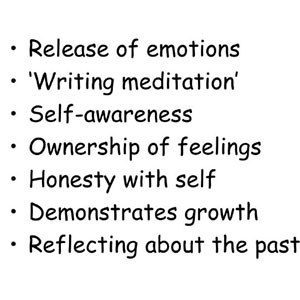
Writing is a highly effective technique for self-expression, self-improvement, and intellectual development. Keeping a writing diary is more than just scribbling down random ideas; it’s a purposeful practice that boosts creativity, improves cognitive capacities, and promotes emotional well-being.
This guide explains the multiple benefits of keeping a writing diary and why it should be a part of your daily routine.
1. Enhances Creativity
A writing notebook, diary, or journal acts as an incubator for ideas, enabling them to flow freely without the restraints of form or judgment. It provides a secure environment for brainstorming, experimenting with new writing techniques and generating original viewpoints.
Consistently practicing this stimulates your creativity, making it simpler to come up with fresh and inventive ideas. This practice over time fosters creativity and artistic confidence, both of which are necessary in any creative endeavor.
2. Improves Writing Skills
Regular journaling improves writing skills by promoting the discipline of articulating ideas concisely. Writing on a daily or periodic basis automatically improves your grammar, vocabulary, and sentence structure.
This constant progress leads to improved academic, professional, and personal writing. Furthermore, examining previous entries allows you to detect trends, shortcomings, and make deliberate attempts to improve clarity and coherence.
3. Improves Mental Clarity and Focus
A crowded mind frequently causes confusion, tension, and inability to focus on vital activities. A writing diary helps you to clean your ideas by transferring them to paper. This technique helps in the organization of ideas, the prioritization of activities, and the development of a clearer perspective on problems. Journaling allows you to define difficulties and seek solutions more effectively, eventually boosting your attention and decision-making skills.
4. Enhances Emotional Well-Being
Writing about emotions is a therapeutic practice that helps you understand and process your feelings. A journal is a non-judgmental place to share your pleasures, anxieties, disappointments, and goals.
According to research, expressive writing helps people address and rationalize their feelings, hence, reducing stress, anxiety, and depression. Journaling promotes self-awareness, resilience, and emotional intelligence by allowing you to continuously reflect on your own experiences.
5. Promotes Self-Reflection and Growth
A writing journal is an effective tool for self-discovery and personal growth. Documenting everyday events, accomplishments, disappointments, and lessons gained provides insights into your behavior and mental processes.
This habit enables you to measure your progress, establish reasonable objectives, and make right choices about self-improvement. Regular self-reflection via writing promotes awareness and self-discipline, resulting in a more focused and satisfying existence.
6. Improves Memory and Cognitive Function
Writing by hand engages brain areas responsible for learning, memory, and understanding. When you write down your ideas, experiences, or new knowledge in a diary, you strengthen brain connections that improve memory and comprehension.
This exercise is especially effective for students and professionals who must remember and analyze large volumes of information. Journaling also promotes critical thinking and problem-solving abilities which help with general cognitive growth.
7. Encourages Goal Setting and Accountability
Setting objectives is critical for success but measuring progress is just as crucial. A writing journal serves as a record of your goals, tactics, and accomplishments. Regularly evaluating entries allows you to determine whether you’re on track or need to make changes. This practice promotes accountability, discipline, and drive, making it simpler to stay focused on personal and professional goals.
8. Captures Life’s Journeys and Memories
A journal is a personal record of events, feelings, and milestones. Over time, it accumulates rich memories that might be accessed for contemplation, nostalgia, or even inspiration. Unlike computerized recordings, hand-written notebooks have a human touch that elicits stronger emotional responses. Journaling allows you to preserve your ideas and experiences ensuring that important events are cherished and appreciated rather than forgotten.
9. Enhances Communication Skills
Effective communication is a necessary ability in both personal and professional settings. Journaling enhances articulation, coherence, and the capacity to organize thoughts coherently.
Regularly participating in written expressions improves your capacity to present thoughts more clearly and convincingly. This improvement in communication includes linguistic abilities, making conversations more engaging and meaningful.
10. Reduces Stress and Promotes Relaxation
Writing has a relaxing impact on the mind much like meditation. Journaling allows you to express pent-up emotions, disappointments, and anxieties which helps to reduce stress.
Reflective writing before bedtime can also help to relax and enhance sleep quality. Writing down your ideas assists you to productively process your issues resulting in a sense of relaxation and emotional equilibrium.
11. Encourages Discipline and Consistency
Maintaining a writing journal involves dedication which fosters discipline. Journaling on a daily or regular basis promotes consistency which is vital for success in many areas of life.
Whether it’s creative writing, academic work, or personal growth, the ability to stick to a schedule boosts productivity and motivation.
12. Enhances Problem-Solving Abilities
Journaling promotes critical thinking by forcing you to assess events, weigh opposing viewpoints, and investigate alternative solutions. Writing about a issue helps you to deconstruct it methodically, identify the core reason, and design a solution. This organized approach to issue solving improves decision-making abilities and prepares you to deal with obstacles more effectively.
13. Promotes Gratitude and Positive Thinking
Expressing appreciation is an effective method to improve mental and emotional health. A thankfulness diary, a form of writing journal, assists in noting and appreciating life’s benefits, hence, creating a happy attitude. By intentionally documenting good events and accomplishments, you shift your attention from negativity to optimism, resulting in increased happiness and pleasure.
Keeping a writing journal is a transforming habit with significant rewards. It encourages creativity, improves writing abilities, boosts cognitive functioning, and promotes emotional resilience. Journaling, whether for self-reflection, goal planning, stress release, or memory retention, is a vital exercise that promotes personal and intellectual growth.
By adopting writing into your daily practice, you can realize the potential for ongoing development and a more rewarding existence. Make the commitment today and get the numerous benefits of maintaining a writing notebook.

Leave a Reply